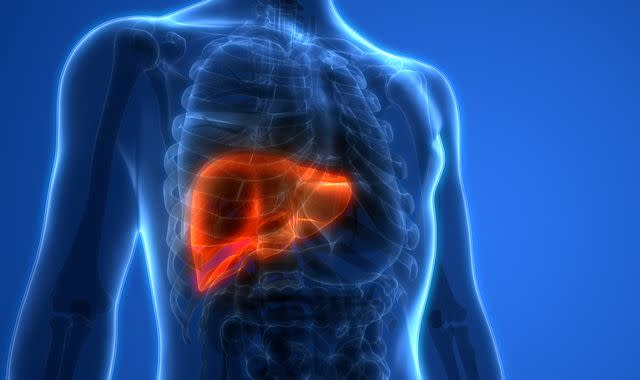Pill made from freeze-dried faeces to be taken by liver disease patients in clinical trial

A clinical trial testing the effectiveness of faecal transplants for patients suffering from advanced liver disease is being launched in the UK.
The trial will test whether faeces from healthy people, which are freeze-dried into capsules that can be ingested, reduces the likelihood of patients with cirrhosis getting infections.
Cirrhosis is a condition that results when the liver is scarred and permanently damaged.
Research suggests that patients with liver damage have higher levels of "bad" bacteria in the gut than healthy people, meaning that they are more likely to catch infections that are difficult to treat with regular antibiotics.
The trial will investigate whether consuming "crapsules" - as they have been dubbed - which often contain so-called 'good' microbes or bacteria, can improve the health of the guts of patients with cirrhosis.
Dr Lindsey Edwards, a lecturer at King's College London and one of the leaders of the trial, said that she hopes the tests will help patients with advanced liver diseases reduce the need for antibiotics going forward.
"There is an urgent and unmet need to tackle infection and antimicrobial resistance in chronic liver disease," she said.
"If we can boost liver patients' own immunity to reduce infections by modifying the microbiome, we can reduce the need for the prescription of antibiotics."
Around 300 people are expected to take part in the trial, which is being funded by the National Institute for Health and Care Research UK.
Patients will be randomly allocated to receive either freeze-dried stool capsules or a placebo tablet every three months for two years.
A previous trial of around 32 people found that faecal microbiota transplant (FMT) worked and was safe.
Professor Debbie Shawcross, the chief investigator of the trial, reassured potential participants by saying: "The 'crapsules', which have none of the taste or smell as the name suggests, may offer new hope for patients with cirrhosis who are out of treatment options."
Liver disease kills around 40 people per day and is the third biggest cause of premature death among working-age people, according to the British Liver Trust, which is collaborating in the trial.

 Yahoo News
Yahoo News 
